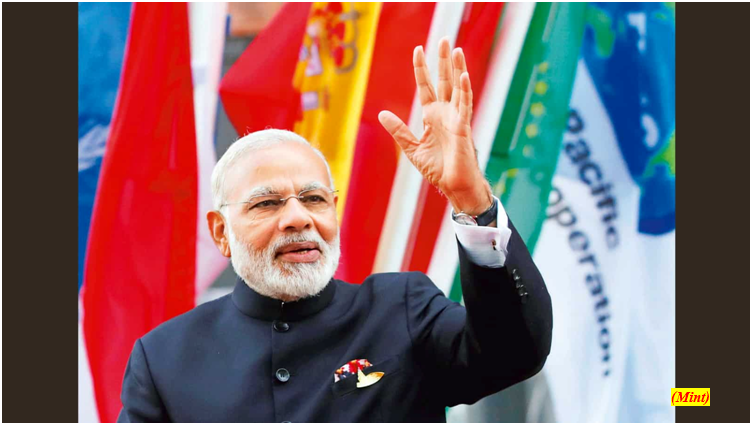The CAGs G20 opportunity (GS Paper 2, International Organisation)

Context:
- With India’s assumption of the G20 presidency on December 1, 2022, CAG of India, i.e., SAI India shall take the chairmanship of SAI20.
- SAI India shall remain dedicated to the recognition of independence, transparency, accountability, collaboration, and continuity as the vital pillars of this engagement group.
About SAI20 Engagement Group:
- The SAI20 Engagement Group, a group of Supreme Audit Institutions of G20 countries, works towards strengthening governance institutions to respond with improved, agile, and reliable methods to the emerging problems of our times, as well as to enable governments to deliver a good quality of life to citizens.
- The establishment of this engagement group has led to the creation of an ecosystem where the SAIs articulate strategies through multi-stakeholder engagements to deliver as partners in governance through positive and rigorous people-centric policies while also advancing greater transparency and accountability.
Priority areas:
- Under the guiding philosophy for India’s presidency of G20, Vasudhaiva Kutumbkam, which sees the world as “One Earth, One Family, and One Future”, the Comptroller and Auditor General (C&AG) of India is proposing the collaboration of G20 SAIs on two priority areas:blue economy and responsible artificial intelligence.
Blue economy:
- Blue economy is an economic system that encompasses a spectrum of policy and operational dimensions aimed at conserving marine and freshwater environments while promoting their sustainable use, producing food and energy, supporting livelihoods, and acting as a driver for economic advancement and welfare.
- Blue economy takes forward the concept of Lifestyle for Environment (LiFE), introduced by India at the COP26 Glasgow summit, which emphasises the need for ‘mindful and deliberate utilisation’ to sustain and revitalise the marine and freshwater environments.
Role of SAIs:
- As a priority area, it serves to bring the focus of SAIs to particularly (but not exclusively) SDG 14, viz. Life Below Water.
- The objective is to collaborate on auditing policies and programmes that influences the blue economy in a way that is impactful and progressive with an appreciation of its strong interlinkages that span communities, sectors as well as nations.
- Considering that fishery is majorly the occupation of economically vulnerable sections, SAIs are compelled to exercise their oversight more effectively in the interest of greater inclusiveness in society and their immediate relevance to the people.
- The C&AG of India shall strive to formulate consensual and widely applicable standards or guidelines that shall enable SAIs to evaluate and guide, within their respective mandates, the development and effective implementation of policies and programs which balance sustainability on the one hand with economic progress and welfare on the other.
Responsible Artificial Intelligence:
- The focus on the second priority area, responsible AI, is in sync with the fast-snowballing role that AI systems are playing in the lives of citizens while also appreciating its deeply disruptive potential.
Challenges:
- As with the blue economy, the problems related to responsible AI are topical, multidimensional, and interdependent. The concerns span issues of legality, ethicality, and the philosophical choices of human versus non-human agency.
- Apart from concerns of privacy, AI poses issues of biases and discrimination on account of the lack of comprehensibility of the algorithms to the common man, as the systems progressively auto-evolve.
- There has been extensive recognition and strong advocacy to generate awareness on the use of responsible AI across governments, businesses, and civil society organisations.
- During the G20 Ministerial Statement on Trade and Digital Economy in June 2019, and per recommendations on the Ethics of AI by UNESCO in November 2021, the articulation of the fact that a digital society must be built on trust among all stakeholders has begun.
Role of SAIs:
- While the application of AI continues to encompass more and more areas of our lives, it poses challenges of complexity to both governments as well as SAIs in its understanding, regulation, and auditability to ensure its responsible use.
- It is important for SAIs to develop responsive capabilities to address the core questions in the use of AI systems to position themselves essentially as an agent of effective oversight and provide evidence-based support in comprehensive policy formulations and implementation.
- C&AG of India’s endeavour shall be to generate broad consensus on the nature and extent of interventions that SAIs can exercise towards promoting the values of responsible AI while staying within their respective mandates.
Way Forward:
Taking forward the highly pertinent priority areas, as the chair of SAI20, C&AG of India intends to undertake strong, successful, and widely participative collaboration of G20 SAIs for an efficacious and unmatched G20 presidency.


